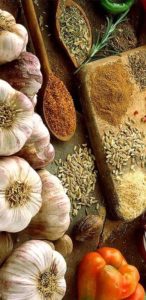Without a doubt there are natural remedies for almost all ailments or illnesses However there are a great many myths about miracle cures for acne, back pain, arthritis and so on Often you will be better saving your money and using natural methods for your aliments, aches and pains.
From our list of herbs and spices, the following are recommended for Kidneys:
Scroll down for links.
- Aloe Vera Leaf
- Artichoke
- Burdock Root
- Carrot
- Celery Seed
- Chamomile
- Chicory Root
- Corn Silk
- Couch Grass
- Cranberry
- Dandelion Root
- Fennel Seed
- Ginger Root
- Ginkgo Biloba
- Goldenrod
- Goose Grass
- Gravel Root
- Horsetail
- Hydrangea
- Juniper Berry
- Kelp
- Licorice Root
- Marshmallow Root
- Parsley Leaf
- Rehmannia Root
- Sheep Sorrel
- Uva Ursi
- Yucca
Natural Cures and Remedies for Kidneys
Recently Viewed
Home Remedies For Weight Loss
Home Remedies Gallstones
Home Remedies Asthma
Home Remedies Anal Fissures
Home Remedies Cramps
Home Remedies Hives
Home Remedies Herpes
Home Remedies Diaper Rash
Home Remedies Pimples
Home Remedies Swollen Feet
Acne Remedies
Home Remedies Sinus
Sleeping pills are no remedy for sleeplessness. They are habit forming and become less effective when taken continuously. They lower the I.Q., dull the brain and can prove fatal if taken in excess or before or after alcohol. The side-effects of sleeping pills include indigestion, skin rashes, lowered resistance to infection, circulatory and respiratory problems, poor appetite, high blood pressure, kidney and liver problems and mental confusion.

Organs or systems affected Kidneys, stomach, cardiovascular system, lymphatic system, reproductive system Therapeutic actions Stimu-lant Nature Bitter, sweet, salty, warm Plant constituents Salt, volatile oils, terpenes, couma-rin, sterols, resin, gum, minerals Flower essence Helps promote confidence in taking action
Aloe Vera Leaf, Artichoke, Burdock Root, Carrot, Celery Seed, Chamomile, Chicory Root, Corn Silk, Couch Grass, Cranberry, Dandelion Root, Fennel Seed, Ginger Root, Ginkgo Biloba, Goldenrod, Goose Grass, Gravel Root, Horsetail, Hydrangea, Juniper Berry, Kelp, Licorice Root, Marshmallow Root, Parsley Leaf, Rehmannia Root, Sheep Sorrel, Uva Ursi, Yucca
Exanthema ; Gonorrhea ; Gout ; Gravel ; Halitosis ; Hepatosis ; Hydrocele ; Inflammation ; Itch ; Jaundice ; Kidney Stone ; Leukorrhea ; Nephrosis ; Rheumatism ; Scrofula (f;
Organs or systems affected Bladder, kidneys Therapeutic actions Diuretic, astringent, soothing tonic, antiseptic Nature Pungent, cold, dry Plant constituents Flavonoids, tannins, acids, triterpenoids, essential oils, resin, allantoin, trace minerals including iron, calcium, chromium, selenium, magnesium Flower essence Heals the feminine aspect within us all and helps us better connect with and understand the healing powers of nature; also aids in pathologies of the ovaries
Contraindications, Interactions, and Side Effects (Longleaf Pine) – Commission E reports contraindications for EO: whooping cough; adverse effects: local irritation, exacerbation of bronchospasms (AEH). Though approving pure turpentine for “Chronic disease of the bronchii with heavy secretion” (which I translate to bronchosis), Commission E contraindicates for acute inflammation of the respiratory tract. Inhaled turpentine may reduce bronchial secretion (KOM). Even topical application to too much surface area may damage the CNS and kidneys (KOM). Turpentine is a counterirritant and rubefacient. Though also taken internally, turpentine might best be relegated to topical uses, if any.
Aloe Vera Leaf
Artichoke
Burdock Root
Carrot
Celery Seed
Chamomile
Chicory Root
Corn Silk
Couch Grass
Cranberry
Dandelion Root
Fennel Seed
Ginger Root
Ginkgo Biloba
Goldenrod
Goose Grass
Gravel Root
Horsetail
Hydrangea
Juniper Berry
Kelp
Licorice Root
Marshmallow Root
Parsley Leaf
Rehmannia Root
Sheep Sorrel
Uva Ursi
Yucca
Contraindications, Interactions, and Side Effects (Sheep Sorrel) – Class 2d (AHP). Those with kidney stones should avoid this plant. Oxalates should be avoided by patients with endometriosis and nephrosis. Oxalic acid levels may attain 10-35% of dry matter in some species. The LDlo reported for humans is 700 mg/kg body weight. Weighing 110 kg, my LDlo would be 77,000 mg, or 77 g (more than 2 ounces of oxalic acid) (HOW). Polysaccharides show antitumor activity (ZUL).
